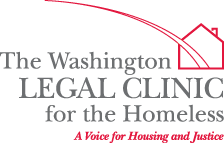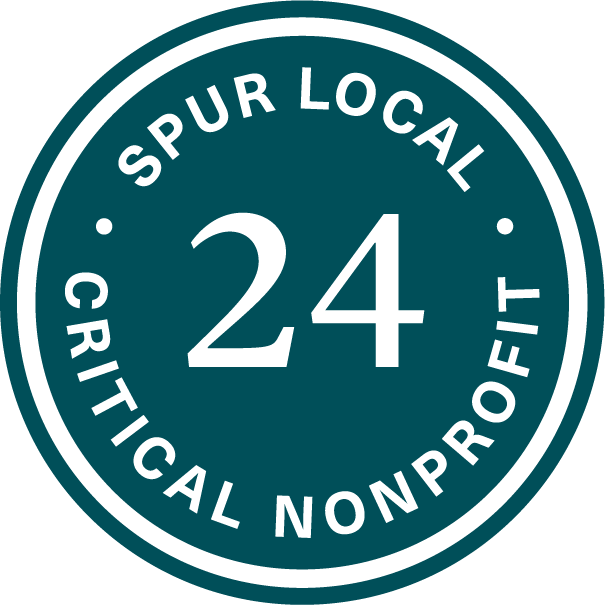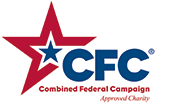About a month ago, Mayor Bowser closed the doors to DC General family shelter. After seeing Mayor Bowser’s tweets about the closure of DC General using the hashtag #PromisesKept, we took a moment to reflect on the fact that closing DC General was never the only, or even the most important, promise Mayor Bowser made to families experiencing homelessness.
We are not talking about Mayor Bowser’s promise not to close DC General until the replacement shelters were ready. With only two out of six replacement shelters open at the time DC General closed (now three out of six are open), Mayor Bowser clearly did not keep that promise.
We are not even talking about the implicit promise that the Mayor of the District of Columbia makes to her constituents—that she will refrain from endangering their health and lives, particularly when they are quite literally being sheltered by their government. She broke that promise when, despite over 1300 individuals, 50 organizations, and 8 DC Council members asking her to wait to demolish a nearby building until the families had moved out of the shelter, she went ahead with the demolition mere weeks before the final few dozen families exited. According to the DCist: “…deconstruction has resumed on Building 9, an uninhabited building about 250 feet away from the main shelter that the administration of Mayor Muriel Bowser has insisted on demolishing while residents are still on site.” No reason was ever given for this complete disregard of her constituents’ opposition and the health of the families living there. She never even responded to the petition.
We are instead talking about a promise that Mayor Bowser made that would have rendered these other promises moot: her promise to end family homelessness by 2018. In Mayor Bowser’s Twitter thread about the closure of DC General there is a video excerpt of her 2015 State of the District address that begins with her statement about closing DC General. Right before that excerpt, though, the Mayor had just said: “…we will deliver on another promise: ending family homelessness by 2018.” In fact, closing DC General was initially presented as secondary to her primary goal of ending family homelessness. Her transition plan listed “End Family Homelessness by 2018” before it listed “Close DC General” and even the DC General closure goal focused, rightfully, on how to prevent and end family homelessness: “In working to produce more affordable and subsidized housing as well as implementing additional prevention services, as Mayor, Muriel Bowser’s goal will be to lesson [sic] the number of families and individuals in need of shelter. Muriel is committed to finding long-term solutions for would-be homeless families and individuals before turning to a shelter, developing smaller shelter alternatives, and, ultimately, closing DC General.” See also here and here for times where the Mayor reiterated that promise.
Unfortunately, the Mayor has not kept this promise either. We are in the last month of 2018 and DC is nowhere near to ending family homelessness. As of November 19, there were 422 families in the overflow hotels, up to 130 families in the DC General replacement shelters and over 100 families in other emergency shelters. It’s not even clear how much progress the Administration has made keeping this promise. The Bowser Administration often suggests that the HUD Point in Time count demonstrates that their efforts at ending family homelessness are working. They point to the downward trajectory from 2016 on of families who are staying on the street or in shelter. The Mayor’s first term, though, from 2015 to 2018, only shows an 18% decrease in the number of families counted as homeless by HUD, which is still significantly higher than the number of homeless families in 2008.
There is other data that complicates the Mayor’s narrative of progress on ending family homelessness. DC schools collect data on how many children experience homelessness—basically its own “point in time” count of homeless students. That number significantly increased between 2016 and 2017 and remained level between 2017 and 2018. The number of homeless students almost doubled between 2015 and 2018, the years of Mayor Bowser’s first term.

Source: District of Columbia Office of the State Superintendent of Education’s (OSSE’s) Fiscal Year 2017 Performance Oversight responses to the Committee on Education
We are troubled by these numbers. Since the HUD Point in Time data only counts families who are in the District’s shelter system or literally on the street, we worry that looking at that data only tells us how well DC is doing at keeping families out of emergency shelter, not how well DC is doing at ending family homelessness. To honestly assess DC’s progress on ending family homelessness, DC must look at how many families are in shelter, how many children are struggling to learn while homeless, how many families are turned away from shelter even when they have nowhere to go, and how many families are bouncing from couch to couch because they have no safe, stable home of their own. Only when all DC families have safe and secure housing will DC have ended family homelessness.
It is indisputable that the Mayor has not yet ended family homelessness. We have an opportunity now to reset the clock for her second term, reassess DC’s approach to family homelessness, and devote the necessary resources to truly end family homelessness in DC.
The Mayor is not the only one who needs to be held to a promise to end homelessness, of course. Just last week the DC Council voted to give $20 million in revenue from online sales tax that was supposed to be devoted to ending homelessness to large commercial property tax cuts. That money could end homelessness for 700-1000 households. The bill requires one more vote to become law, so we will certainly be sharing our position with DC Council: that they must keep their promise to devote online sales tax revenue to ending homelessness. (For more information, click here. To take action, click here.)







This is an excellent explanation of the Mayor’s failure to deliver on her promises. It motivated me to write to members of the Council via the JUJ link.